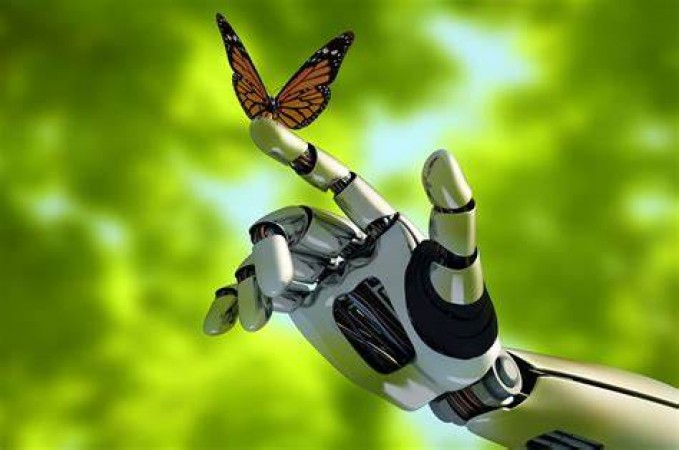
Generative AI, including advanced models like ChatGPT and Bard, is revolutionizing various aspects of our lives, from work assignments to dating and creative endeavors. However, this technological advancement comes at a significant cost to our environment, with the immense computational power required by AI contributing to environmental damage.
Generative AI is redefining how we work, learn, and interact, but the infrastructure that powers it exacts a toll on the environment. The colossal computer systems and server farms supporting AI consume extensive amounts of water and release substantial carbon emissions, highlighting an urgent need to strike a balance between technological innovation and environmental preservation.
The information and communication technology industry, once considered relatively eco-friendly, now accounts for a substantial portion of global electricity consumption and carbon emissions. Recent statistics from the European Parliament reveal that this industry consumes up to 10% of the world's electricity and contributes 2-5% of the world's global carbon emissions.
Projections indicate that the environmental impact of AI infrastructure will exacerbate in the coming decades. Research published in the Journal of Information, Communication and Ethics in Society suggests that by 2040, the industry's emissions could surge to a staggering 14% of global emissions.
The energy required to train large AI models is alarmingly high, equivalent to approximately 626,000 pounds of carbon dioxide. This is nearly five times the total emissions of an average car over its lifetime and highlights the magnitude of environmental impact associated with AI advancement.
Despite being heralded as a potential solution to climate concerns, AI's environmental footprint remains a contentious issue. While the UN's Intergovernmental Panel on Climate Change suggests that AI can enhance energy efficiency and foster renewable energy adoption, critics emphasize that the industry must grapple with its real impact on the environment.
AI's water consumption often goes unnoticed. For instance, ChatGPT utilizes a significant amount of water for cooling purposes. Each 20 to 50 prompts result in the consumption of a water bottle's worth of fresh water, underlining the need for sustainable approaches in AI development.
Major tech companies have initiated environmentally friendly projects, aiming to offset their carbon footprint. However, critics argue that these initiatives, while commendable, may fall short of addressing the profound environmental implications of AI infrastructure.
As the world increasingly embraces AI, finding a sustainable approach is imperative. A balance between technological innovation and environmental preservation must be struck, ensuring that progress does not come at the cost of our planet's health.
Stakeholders, including tech companies, researchers, and policymakers, must collaborate to develop eco-friendly AI solutions. This includes investing in renewable energy, optimizing data centers, and exploring innovative cooling technologies to mitigate environmental impact.
Generative AI is reshaping our world, but it is crucial to acknowledge and address its environmental consequences. Striking a harmonious balance between technological advancement and environmental sustainability is the key to a brighter future.
Asia Cup 2023: Shubman Gill Sets Sights on Sharpening Batting Prowess for Slower Pitches
Vishwakarma Jayanti 2023: Offering 6 Bhog Items to Lord Vishwakarma
Narendra Modi Retains Title of World's Most Popular Global Leader with 76% Approval Rating: Report